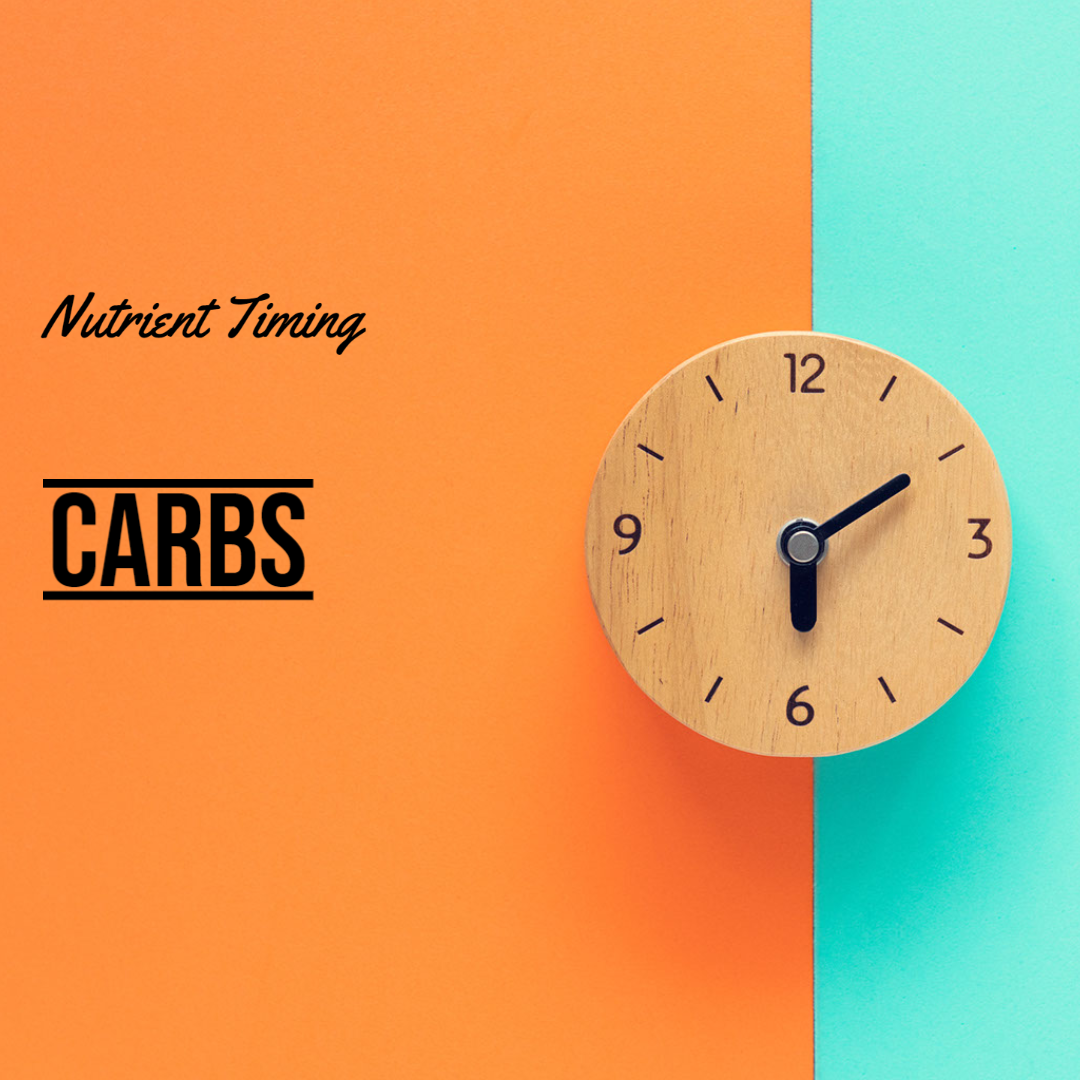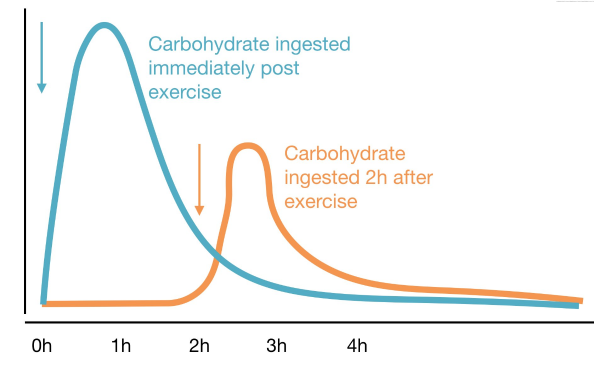
Timing Your Carbohydrates
Nutrient Timing
We established the type of fuel needed, CHECK :) One question remains… When should we refuel??! In my last post, we went over the right nutrient for the right exercise intensity. So now we must tackle the right nutrient at the right TIMING.
Nutrient timing is a very important subject for athletes. Failing to refuel at the right time, just like driving your car, will leave you without energy to perform. Here is my breakdown, in line with national sports position statements, suggesting pre/during and post exercise nutrition. Today I will be focusing only on Carbs, and will tackle protein and creatine in seperate posts (so stay tuned!)
Carbs
For moderate to high intensity endurance (65-80% VO₂max) and resistance (3-4Sets, 6-20RM loads) workouts, the body relies on carbohydrates as a fuel source.
As a general rule, national statements recommend; 5-12g/kg/day / 8-10g/kg/day (for those training >/=12hr weekly at >/= 70%VO₂max)

Pre-Exercise
Consequently, before starting heavy bouts of exercise, a concept of carb loading is recommended. Glycogen stores can only last a few hours, and as they diminish, output diminishes, and muscle breakdown and immunosuppression ensues. Research has shown that athletes that have been properly loaded with carbs prior to training/competitions had higher post exercise glucose levels when compared to those that started their training in a low carb state.
Recommended;1-4g/kg 3-4 hours before starting high intensity training
During Exercise
The aim of nutrient intake during exercise is to maintain blood glucose levels. This is particularly useful for endurance athletes that need to sustain their output over a longer period of time.
An Australian research study, had 8 highly trained cyclists train at 70%VO₂max until fatigue. Half of the participants were given a placebo, the other half 8%carb solution during exercise. Those that had the carb solution, cycled for an avg. of 47mins longer than the other cohort, until they got too fatigued to continue.
When exercising for more than an hour, the intake of carbs becomes more important to maintain peak performance. It is recommended that 30-60g of carbs are ingested each hour, coupled with hydration, to maintain blood glucose levels.
Recommended; 30-60g / hour, 250-350ml of a 6-8% carb-electrolyte solution, every 10-12mins
Sports drinks tend to provide the ideal solution since they would also contain potassium and sodium for fluid-electrolyte balance.
For resistance athletes, carb intake during exercise is less researched, however national position statements recommend that those working at 3-6sets of 8-12RM using multiple major muscle groups, consume carbs during their training to promote muscle glycogen replenishment and reduce muscle damage.
What type of carb during exercise? Glucose, sucrose, maltodextrin and fructose can be used in a combined solution - however fructose in large amounts can cause issues with digestion.
Post Exercise
The famous 30min carb window post workout!
Muscle Glycogen Resynthesis Post Workout (Repost @Jeukendrup / mysportscience.com

In an early study about this topic, evidence showed that muscle glycogen replenishment was 50% faster when a carb ingestion was done immediately (within 30mins) post exercise, versus waiting for 2hours to refeed.
During this window, evidence suggests supplementing the body with 0.6-1g/kg to maximise muscle glycogen replenishment.
Recommended; 0.6-1.2g/kg in the first 30mins post exercise bout - Repeat every 2 hours for the next 4-6 hours

Post-exercise carb consumption is particularly important when recovery time is minimal and athletes are required to perform again within less than 24 hours. In this case ensuring intake of >/=8g/kg/day is necessary to maximally replenish muscle glycogen within 24hours.
As for resistance athletes, protein gains more importance in post exercise nutrition, coupled with the recommended carb intake in the following amounts 0.2g-0.5g/kg protein + 0.6-1.2g/kg carbs, further boosts mucscle glycogen resynthesis.
Ingesting protein together with carbs has shown increases in strength and retention of lean muscle mass, but I will leave the topic of protein timing for another post, as lots of research is out there and merits it’s own attention.
Stay tuned !
For Pre/Mid/Post workout meal examples, check out one of my previous posts - Fuel your Workout!

